"Where other composers have a heart," musician and writer Hans Keller once said, "Richard Strauss had a pool of sentimentality." This lofty dismissal has always seemed a bit hard on the composer of Der Rosenkavalier. But it came to mind a bit too often during Richard Jones's staging, which opens the Glyndebourne season (one rightly dedicated to the memory of former chairman George Christie, who died last month).
A number of musical and theatrical elements make the new production seem brittle and sometimes mechanically shallow, with real emotion in short supply. This is Robin Ticciati's first show as Glyndebourne's music director. Where his conducting is mostly efficient – after a shambolic orchestral prelude from the London Philharmonic Orchestra, and moments of untidiness elsewhere – and tactfully supportive of his singers, it does not have much warmth. Jones's staging, meanwhile, barely exudes real affection for the work either; even the final trio doesn't melt hearts.
Paul Steinberg's sets and Nicky Gillibrand's costumes set the action careering through the first half of the 20th century. It begins in conventional rococo splendour for the Marschallin's levee, with just enough parody of secessionist Vienna to undermine its seriousness and to justify the figure of Sigmund Freud sitting in on the Marschallin's musings about ageing and the passing of time. It then moves into art deco for the Faninals' palace and the presentation of the silver rose, before finishing up somewhere in the 1950s or 60s in the farce of the final act. No hard-edged political point is being made, I think; perhaps the suggestion is that even the cataclysms of two world wars hadn't been enough to shift the class distinctions in Viennese society that drive the opera's comedy.
As ever with Jones, however, the stagecraft is immaculate, even if we've seen much of it before: the parade of eccentrics who petition the Marschallin in the first act, the camp chorus line of flunkies in the second, the comic grotesques who haunt Ochs in the third. His best stroke comes at the start where, instead of the usual writhing couple on a bed, the curtain rises on Kate Royal's Marschallin taking a shower, watched by Tara Erraught's adoring Octavian, even though the unforced naturalism of that scene seems a bit at odds with the caricatures that arrive later.
With or without her clothes, Royal looks very much the 30-something Marschallin that Strauss and Hoffmannstahl envisaged but is too rarely seen onstage. And it's hard to imagine this stocky Octavian as this willowy women's plausible lover. Erraught is clearly a hugely promising mezzo, but she seems miscast. She's better matched to Teodora Gheorghiu's nicely mousey Sophie, who is treated like a marionette by her uber-respectable father, Faninal (Michael Kraus), and as just a commodity by Ochs.
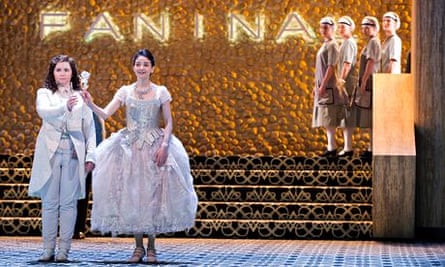
Royal, Erraught and Gheorghiu make an elegant enough team vocally – Royal is silvery rather than creamy-toned – but no one treats the text with the care it needs, so that this most conversational of operas loses an important dimension; Lars Woldt's otherwise rather well-judged Ochs is a particular problem in this respect. And, although the comedy is engineered to the last inch, it's never really funny. The fact that the most watchable performance comes from Joseph Bader as Ochs's bastard son, Leopold, several groschen short of the full schilling, who never sings a note, says a great deal. If it doesn't make you laugh, it's not going to make you cry, either.
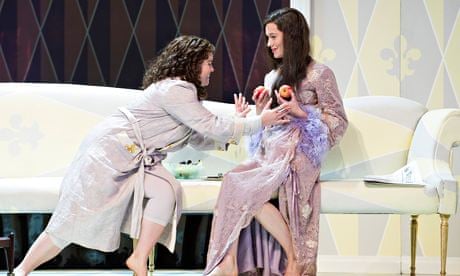
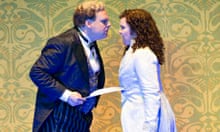
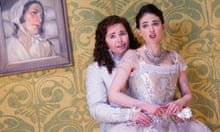

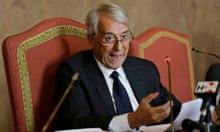
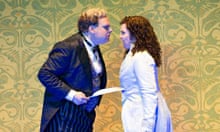
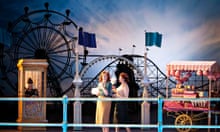
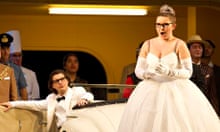
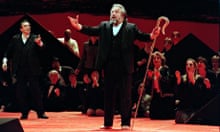
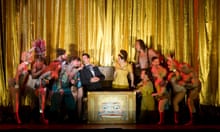
Comments (…)
Sign in or create your Guardian account to join the discussion